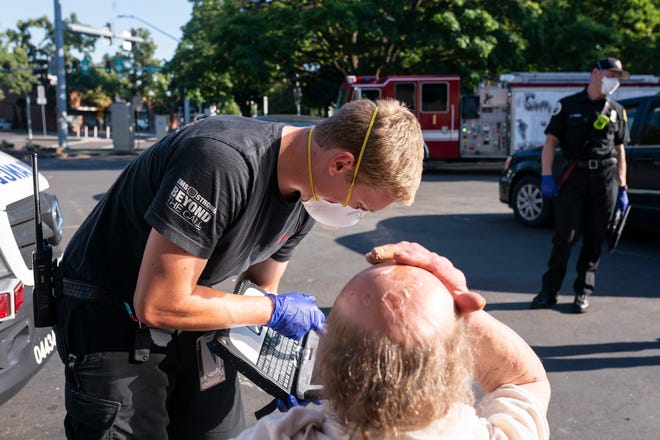
Lawmakers ended the short legislative session Friday after considering and passing more than 100 pieces of legislation.
Among the bills passed was one aimed at providing emergency heat relief to low-income residents, nine months after a historic heatwave killed at least 96 Oregonians. At least seven people died in Salem, two died in Woodburn, and two died in Keizer. One of the deaths also involved a farmworker who died while working in St. Paul.
State lawmakers originally introduced two bills addressing extreme heat, House Bill 4058 and Senate Bill 1536. The two bills were combined into one at the end of the legislative session. The bill has several components:
- Limits the restrictions landlords, homeowners and condominium associations, and local governments can place on installing portable cooling devices in residences.
- Directs the Oregon Health Authority to create a program to acquire and distribute air conditioners and air filters on an emergency basis to low-income Oregonians and renters. The bill allocates $5 million for the program.
- Requires that residential rental units with construction permits approved after April 1, 2024 provide cooling in at least one room of the unit.
- A $2 million grant program will assist landlords in creating community colling spaces during extreme heat events.
- Establishes a $10 million Heat Pump Deployment Program to provide assistance for purchasing and installing heat and cooling pumps and provides additional funding to expand the Oregon Department of Human Services’ grant program for emergency air, warming and cooling shelters.
- Requires the State Department of Energy to study the cooling and electrical needs of public housing, mainfuactured home parks and recreational vehicle parks.
- $2 million appropriatin to the Department of Human Services for grants for emerency shelters or warming or cooling shelters.
On Thursday, the House of Representatives passed the bill 49-9, sending it to Gov. Kate Brown for her consideration.
In a release about the bill’s passage Sen. Kayse Jama, D-Portland, said most of the people who died during June’s heat dome event were seniors, people with disabilities or people with underlying medical conditions.
“To help protect more families, we must remove barriers to installing these appliances and incentivize the most efficient and effective devices,” Jama said.
Rep. Pam Marsh, D-Southern Jackson County, said the bill prepares the state for future extreme weather, which experts predict will become more common.
Other legislation:Controversial proposal to pay farmworkers overtime passes Legislature
Verde was one of the organizations that “played an important role in advocating for this legislation,” according to the release from House Democrats. Other organizations included the Coalition of Communities of Color, Community Alliance of Tenants and Rogue Climate.
“As climate change accelerates, we have to be prepared for more devastating heat in Oregon,” Candace Avalos, executive director of Verde, a Portland-based environmental justice nonprofit, said. “I applaud communities and lawmakers who came together and passed Emergency Heat Relief to protect the health of Oregon’s communities of color, renters, low-income folks, children, our elders and people with disabilities.”
